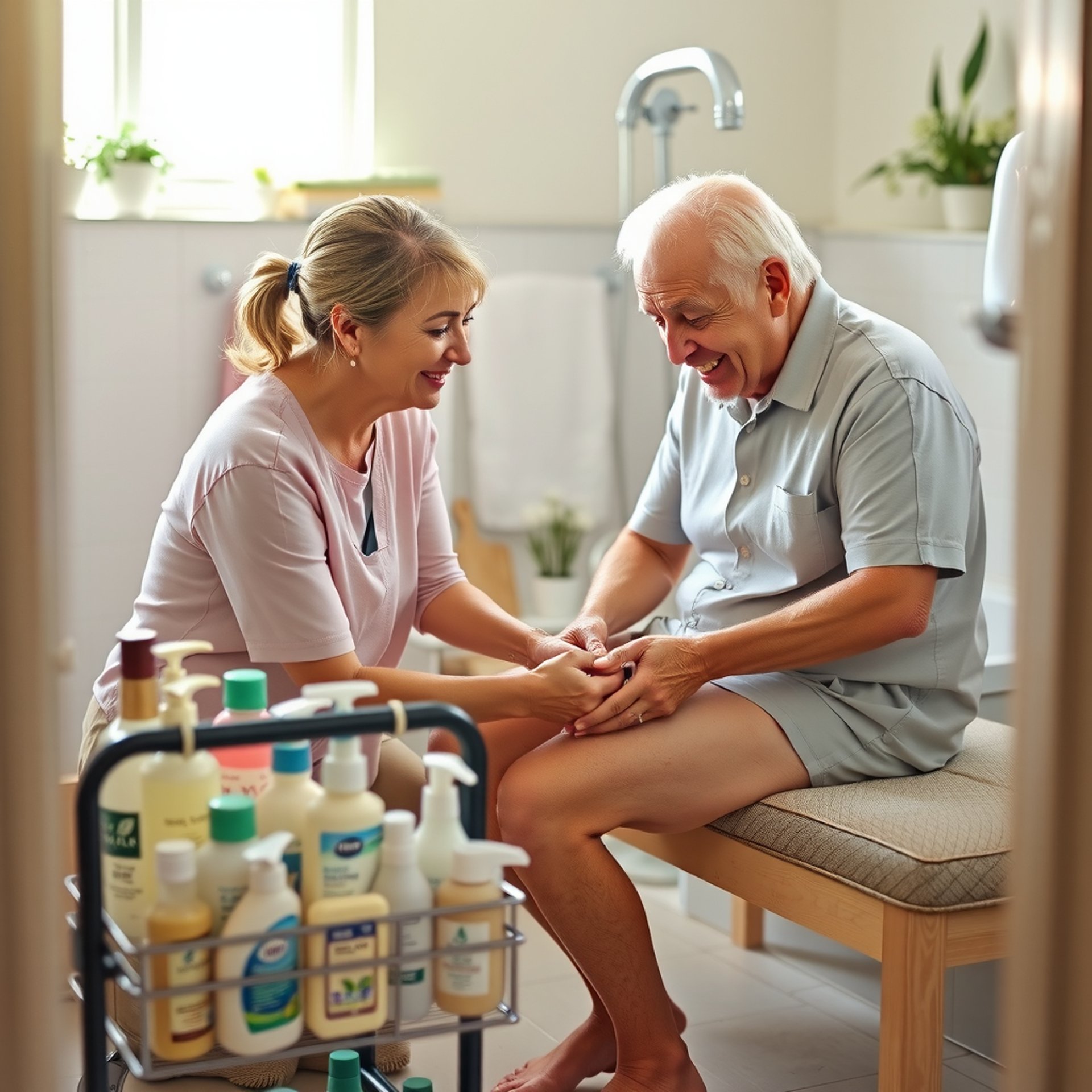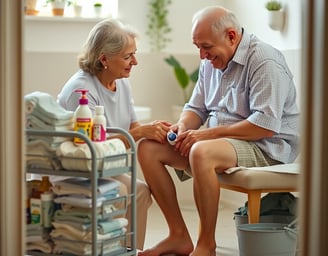
The Essential Guide to Skin Care in Incontinence Management: Tips for Caregivers
HYGIENE AND PERSONAL CAREINCONTINENCE CARE
Proper skin care is a crucial aspect of caring for individuals with incontinence. When urine and feces come into contact with the skin, they can cause skin irritation and rashes, which can escalate to more serious conditions like incontinence-associated dermatitis (IAD), pressure sores, and fungal infections. Regular cleansing, moisturizing, and barrier protection can help maintain skin integrity and prevent complications associated with incontinence. By prioritizing good skin care practices, caregivers can reduce the risk of infections, promote healing, and improve the individual's overall comfort and well-being. This article highlights essential tips for incontinence-related skin care, including regular cleansing, moisturizing and hydration, barrier protection, frequent changes and hygiene practices, and managing and preventing pressure sores. By integrating these skin care practices into daily routines, caregivers can make a positive impact on the lives of individuals with incontinence and improve their overall quality of life.


The Importance of Skin Care in Incontinence
As caregivers, we often focus on the physical aspects of caring for individuals with incontinence. However, it's essential to remember that proper skin care is not just about hygiene; it's a crucial aspect of preventing skin issues related to incontinence.
Maintaining good skin health can make a significant difference in avoiding complications and improving overall quality of life. By prioritizing skin care, caregivers can help prevent skin irritation, redness, and discomfort caused by urine and feces coming into contact with the skin.
The Risks of Poor Skin Care
When urine and feces come into contact with the skin, they can cause skin irritation and rashes. If left unchecked, these issues can escalate to more serious conditions like incontinence-associated dermatitis (IAD), pressure sores, and fungal infections. These complications can lead to increased discomfort, pain, and even systemic infections.
Incontinence-associated dermatitis, for example, is a condition where the skin becomes inflamed and irritated due to prolonged contact with urine or feces. If left untreated, IAD can progress to more severe forms of skin damage, including deep ulcers and abscesses.
The Benefits of Good Skin Care
Regular cleansing, moisturizing, and barrier protection can help maintain skin integrity and prevent complications associated with incontinence. By prioritizing good skin care practices, caregivers can reduce the risk of infections, promote healing, and improve the individual's overall comfort and well-being.
Creating a daily routine that includes gentle cleansing, moisturizing, and barrier protection can make a significant difference in maintaining healthy skin. This routine should be tailored to meet the individual's specific needs, taking into account factors like skin type, age, and medical conditions.
Essential Tips for Incontinence-Related Skin Care
Regular Cleansing: Importance of gentle, frequent cleansing to remove urine and fecal matter.
Tip: Use pH-balanced, fragrance-free cleansers.
Moisturizing and Hydration: Importance of keeping the skin hydrated to prevent dryness and irritation.
Tip: Choose non-greasy, fast-absorbing moisturizers.
Barrier Protection: Using barrier creams and ointments to shield the skin from moisture and irritants.
Tip: Apply thin layers of zinc oxide or dimethicone-based products.
Frequent Changes and Hygiene Practices: Emphasize the need for timely changes of incontinence products to maintain skin integrity.
Tip: Establish a routine schedule for product changes.
Managing and Preventing Pressure Sores: Strategies to relieve pressure and promote circulation.
Tip: Regular repositioning and use of cushions or pads.
Creating a Skin Care Routine
Daily cleansing and moisturizing are essential steps in protecting the skin from irritation and damage. When selecting cleansers and moisturizers, look for pH-balanced and fragrance-free products that won't irritate the skin. It's also crucial to customize the routine based on the individual's specific needs, taking into account factors like skin type, age, and medical conditions.
Additional Skin Care Strategies
Diet and Hydration: Discuss the role of proper nutrition and hydration in maintaining skin health.
Tip: Include foods rich in omega-3 fatty acids and antioxidants.
Clothing Choices: Importance of breathable, loose-fitting clothing to reduce skin irritation.
Tip: Choose cotton or moisture-wicking fabrics.
Monitoring Skin Health: Regular checks for early signs of skin irritation or damage.
Tip: Create a simple checklist for daily skin inspections.
Monitoring Skin Health
Regularly checking the skin for early signs of irritation or damage is critical in preventing complications associated with incontinence. Look out for redness, swelling, or open sores, which can indicate a more serious issue.
Time to Seek Professional Help
If you notice persistent redness, open sores, or signs of infection that don't improve with basic care, it's essential to consult a healthcare professional. They can provide guidance on how to manage the condition and prevent further complications.
Final Words
Maintaining good skin care practices in incontinent care is crucial in preventing complications and improving overall quality of life. By prioritizing regular cleansing, moisturizing, and barrier protection, caregivers can reduce the risk of infections, promote healing, and improve the individual's comfort and well-being.
As caregivers, we have the power to make a positive impact on our care recipients' lives by integrating these skin care practices into their daily routines. Let's work together to prevent complications and improve the quality of life for individuals with incontinence.
Related Article
More for you



